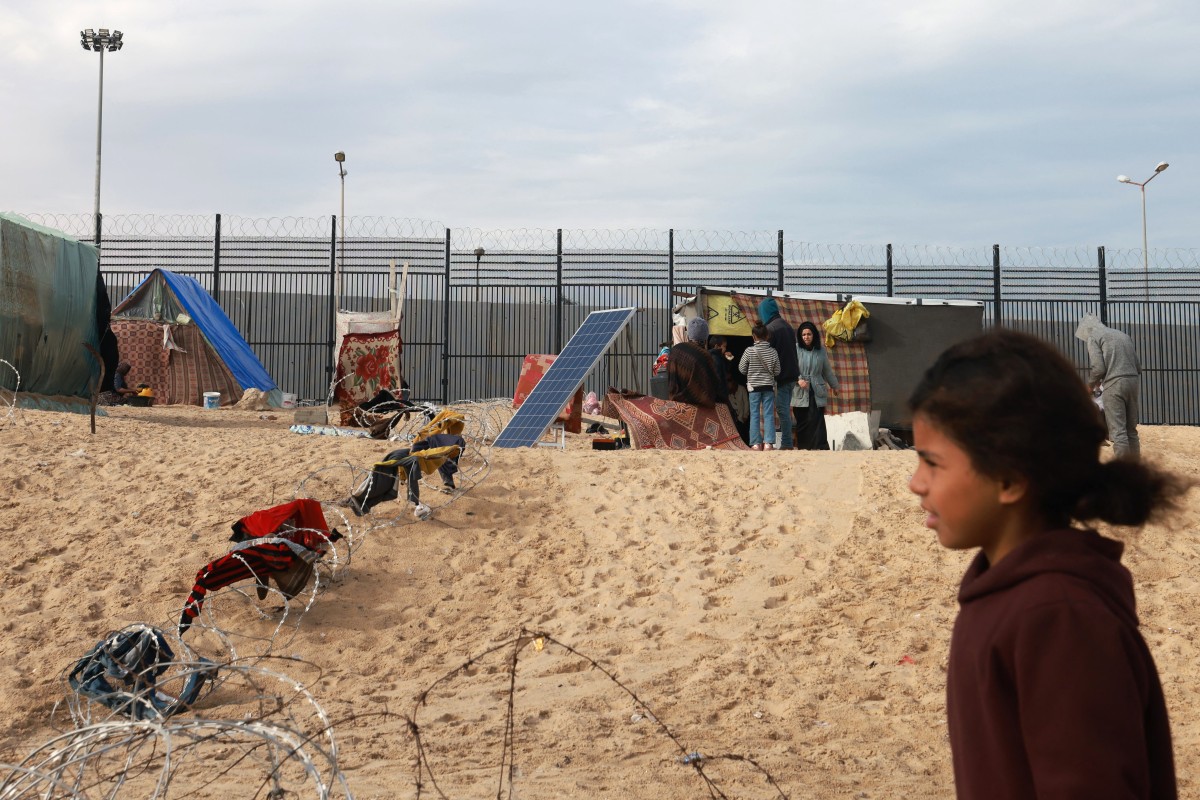
The World Health Organization said Tuesday it had transferred 32 patients out of the besieged Nasser Hospital in southern Gaza but feared for the patients and medics still inside.
WHO staff said the scenes around the hospital in the southern city of Khan Yunis were “indescribable”, while calling the conditions inside ripe for the spread of disease.
Israeli troops entered the Nasser hospital on Thursday, following days of fighting around the complex. It is the chief hospital in the southern Gaza Strip.
“The dismantling and degradation of the Nasser Medical Complex is a massive blow to Gaza’s health system,” the WHO said in a statement.
After being denied access to the hospital on Friday and Saturday, the WHO said it led two life-saving missions to transfer 32 critical patients, including two children, from the complex on Sunday and Monday.
The missions also provided small supplies of essential medicines and food for remaining patients and staff.
The transferred patients were moved to other hospitals and to field hospitals in the Gaza Strip.
“Nasser Hospital has no electricity or running water, and medical waste and garbage are creating a breeding ground for disease,” the UN health agency said.
“WHO staff said the destruction around the hospital was ‘indescribable’. The area was surrounded by burnt and destroyed buildings, heavy layers of debris, with no stretch of intact road.”
The patients were transferred by the Palestinian Red Crescent Society in four ambulances.
“Weak and frail patients were transferred amidst active conflict near the aid convoy,” the WHO said, while road conditions slowed down the vehicles.
“Patients transferred during the missions included three suffering from paralysis — two of them with tracheostomy — and several others with external fixators for severe orthopaedic injuries.
“Two of the paralysed patients required continuous manual ventilation throughout the journey, due to the lack of portable ventilators.”
One patient with a spinal fracture, who had previously been moved from Al-Ahli hospital in northern Gaza, “had to be transferred again, despite his condition”.
– 130 patients remain –
The WHO said an estimated 130 sick and injured patients and at least 15 doctors and nurses remain in the hospital.
The intensive care unit was no longer functioning and WHO staff transferred the only remaining ICU patient to a different part of the complex where others are receiving basic care.
“WHO fears for the safety and well-being of the patients and health workers remaining in the hospital and warns that further disruption to life-saving care for the sick and injured would lead to more deaths,” it said.
WHO spokesman Tarik Jasarevic told a press briefing in Geneva that patients were in darkness in the hospital corridors, lit only by flashlights and mobile phones.
“This is something that should not be happening in any hospital to any patients or health workers,” he said.
The war started when Hamas launched its unprecedented attack on October 7 that resulted in the deaths of about 1,160 people in Israel, mostly civilians, according to an AFP tally of Israeli figures.
Israel’s retaliatory campaign in Gaza has killed at least 29,195 people, mostly women and children, according to the latest count by the territory’s Hamas-run health ministry.
For weeks, Israel has concentrated its military operations in Khan Yunis.
“WHO repeats its calls for the protection of patients, health workers, health infrastructure, and civilians. Hospitals must not be militarised, misused, or attacked,” it said.






